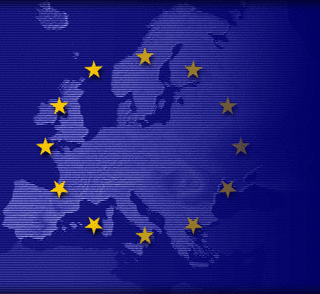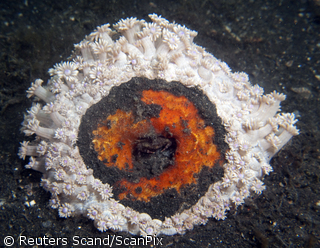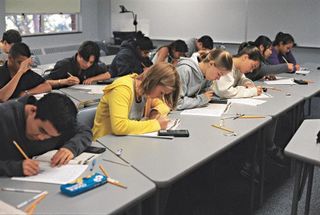CERN's New Particle Accelerator Promises Window on Big Bang
Published:
25 July 2004 y., Sunday
Scientists probing something as big as the origins of the universe sometimes need equipment to match. At the European nuclear research center CERN in Geneva, they're building the most powerful particle accelerator ever. The Large Hadron Collider, as it's called, is expected be able to recreate the conditions that existed at the time of the Big Bang, when the universe was born. Scientists say they hope the new tool will help them unravel the mysteries of matter and energy, and confirm or demolish existing theories.
Contrary to what its name implies, the Big Bang was not necessarily an explosion. Scientists consider the Big Bang to be more of a marker to note that the universe had a beginning. It is the moment in which the universe, space and time were created. CERN Physicist Richard Jacobsson says scientists do not know why or how the Big Bang occurred. But big particle accelerators such as the Large Hadron Collider help them to understand the process.
When the Large Hadron Collider (LHC) is completed in 2007, the superconducting magnets in the machine will operate at 271 degrees, just above absolute zero. However, Mr. Jacobsson says that the temperature created in the proton-proton collisions will be one billion times hotter than at the center of the sun.
Some 6,500 scientists from more than 80 countries currently collaborate on hundreds of ongoing experiments at CERN. The world's biggest particle physics laboratory is celebrating its 50th anniversary this year.
Šaltinis:
voanews.com
Copying, publishing, announcing any information from the News.lt portal without written permission of News.lt editorial office is prohibited.
The most popular articles

The European Commission announced today the award of three of the six contracts for the procurement of Galileo’s initial operational capability.
more »
 Today the European Commission has adopted measures to make participation in the EU's current Seventh Framework Programme for Research more attractive and more accessible to the best researchers and most innovative companies, especially Small and Medium-Sized Enterprises (SMEs).
more »
Today the European Commission has adopted measures to make participation in the EU's current Seventh Framework Programme for Research more attractive and more accessible to the best researchers and most innovative companies, especially Small and Medium-Sized Enterprises (SMEs).
more »
 European civil servants go back to school to talk to young people about what the EU does.
more »
European civil servants go back to school to talk to young people about what the EU does.
more »
 The European Commission adopted the ENPI Interregional Action Programme for 2011. It covers the European Neighbourhood countries and Russia and is worth a total of €52 million.
more »
The European Commission adopted the ENPI Interregional Action Programme for 2011. It covers the European Neighbourhood countries and Russia and is worth a total of €52 million.
more »
Space agency confirms feasibility studies are underway into a one–way mission to colonise the Red Planet.
more »
 Scientists complete the world's first ocean census, part of a 10-year effort in which thousands of new marine species were discovered.
more »
Scientists complete the world's first ocean census, part of a 10-year effort in which thousands of new marine species were discovered.
more »
 The European Commission has launched a new drive to encourage more European universities to offer high-quality courses for students who want to work as translators.
more »
The European Commission has launched a new drive to encourage more European universities to offer high-quality courses for students who want to work as translators.
more »
 Education at a Glance covers 35 countries, including 21 EU countries and looks at what is spent on education, how education systems operate and what results are achieved.
more »
Education at a Glance covers 35 countries, including 21 EU countries and looks at what is spent on education, how education systems operate and what results are achieved.
more »
 European civil servants go back to school to talk to young people about what the EU does.
more »
European civil servants go back to school to talk to young people about what the EU does.
more »
 The World Bank will provide the Palestinian Authority (PA) $5 million to fund the Teacher Education Improvement Project.
more »
The World Bank will provide the Palestinian Authority (PA) $5 million to fund the Teacher Education Improvement Project.
more »
 The European Research Council has now funded over 1000 innovative ideas. A further €661m is still available for early-career researchers.
more »
The European Research Council has now funded over 1000 innovative ideas. A further €661m is still available for early-career researchers.
more »